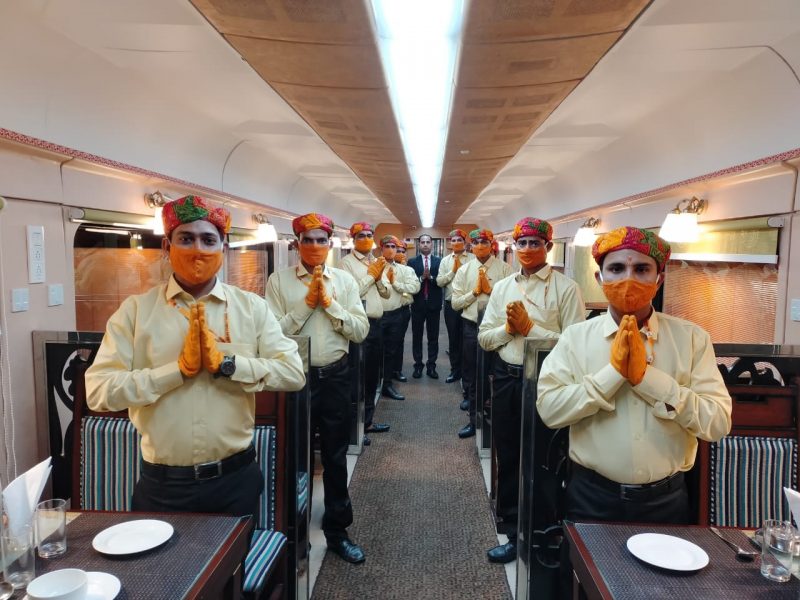
India chugs up the private rail track again; What is the plan?
The Railways has unveiled the Bharat Gaurav scheme, under which private companies will bid to run passenger trains to 100 destinations

Indian Railways (IR) has announced an ambitious proposal to launch a private trains project, called ‘Bharat Gaurav’. After a similar plan last year fell off the track, IR now plans to invite bids from private sector players, who will run over 150 passenger trains from fiscal year 2022-23.
For this, IR has reportedly identified around 100 destinations. Most of these are likely to the ones for which bids invited last year. While the earlier plan was dropped last month due to low bidder interest, the government is hopeful of greater success this next time round.
What’s the project all about?
The aim behind Bharat Gaurav is to promote the tourism business and attract more players to it. The proposed trains will be run by private players, State governments, or any other entity, on theme-based circuits. The operators get not only ‘right of use” of the train routes, but also the corresponding rakes and infrastructure.
Also read: Raring for gigs, TN’s folk artists await revival of Chennai Sangamam
An example would be the Shri Ramayana Yatra train launched on November 7, which is operated by Indian Railway Catering and Tourism Corporation (IRCTC), a publicly listed state-run organisation. The train operates out of Delhi’s Safdarjung railway station, and follows the Ramayana ‘trail’ over 17 days. It runs on selects days at periodic intervals.
With Bharat Gaurav, IR aims to liberalise and simplify some of these operations that are currently the domain of IRCTC. The Railway Ministry is open to any entity running these trains, including State governments. However, private players, particularly tour operators, are the main targets.
What are the logistics arrangements?
The arrangement would have a tenure of at least two years. While IR will decide on the destinations, the operator can fix the rest of it, from the route and the halts, to the services and tariffs. The Railways, however, has given an assurance it will keep an eye on the tariffs and ensure the tickets are not overpriced.
The passengers would get off the train at the fixed stations, visit the place, and stop over at a hotel. All of this will be under the operator’s umbrella services.
IR has earmarked specific coaches for this, designed by the Integral Coach Factory (ICF). The coaches will be available at various rates, such as AC and non-AC sleeper coaches and AC chair cars. The trains are not meant to run on regular routes.
While IR will provide employees to drive the trains, station guards and maintenance staff, the operator will hire staff for housekeeping and catering.
How will the bidders be selected?
While the plan for the new bidding is not public yet, last time, IR opened a Rs.30,000-crore tender in July 2021. This was to cover private trains on 109 origin-destination pairs. The tender was further divided into 12 clusters.
To open bids afresh now, IR is holding talks with investors, said media reports. The bidding parameters will be decided upon based on their feedback. It is likely that Budget 2022 will mention the project, and bidding will begin thereafter.
Typically, investors seek clarity on the various charges — such as base fare for routes, haulage rates, rake costs, and concession period. Their bids will hinge on what the government is willing to offer along these lines, and how long it will take for them to break even and then make profits.
A special unit in each IR zone will process the applications and guide the bidders on the process. Once the bidders are selected, the units will help them with itineraries, approvals and so on, where IR’s experience and existing data will come in handy.
Which companies are participating?
Last time, 15 companies made 120 applications for 12 clusters. But only three clusters — Delhi-1, Delhi-2 and Mumbai-2 — received financial bids, and these came from IRCTC and Megha Engineering and Infrastructure Ltd. Others, such as GMR Highways, IRB Infrastructure and Developer, Cube Highways and Infrastructure and Welspun Enterprises, expressed interest but did not place financial bids.
For the new round, some State governments, such as those of Rajasthan, Odisha, Karnataka and Tamil Nadu, have expressed interest, said Railway Minister Ashwini Vaishnaw recently.
There is reportedly some apprehension among private players and State governments that IRCTC may enjoy an advantage. For one, it comes directly under the IR, and for another, it has vast experience in running train-related operations such as catering and ticket booking. However, the Railway Ministry has sought to allay such fears saying the relevant data will be opened up to all bidders.

